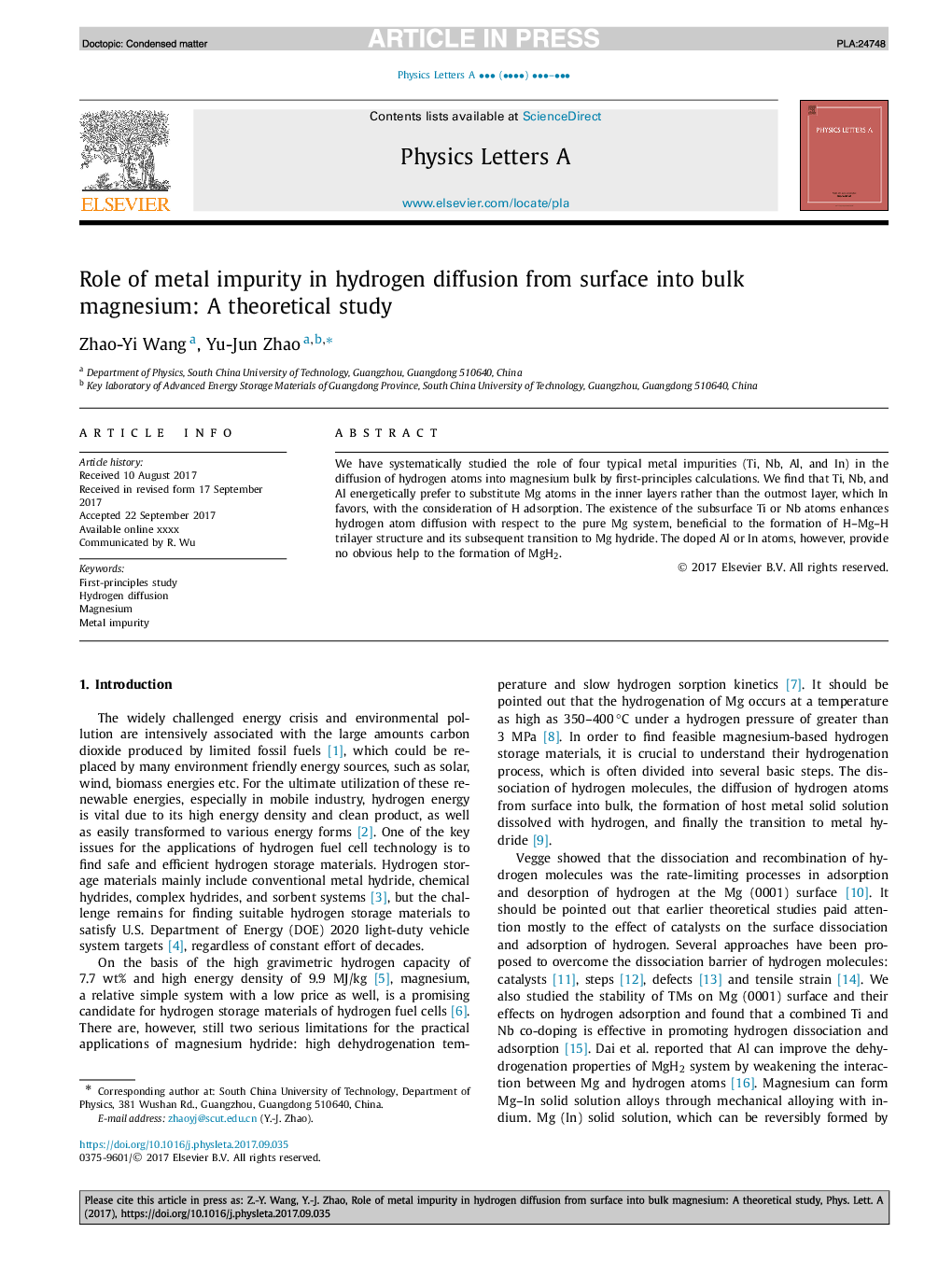| Article ID | Journal | Published Year | Pages | File Type |
|---|---|---|---|---|
| 8204501 | Physics Letters A | 2017 | 5 Pages |
Abstract
We have systematically studied the role of four typical metal impurities (Ti, Nb, Al, and In) in the diffusion of hydrogen atoms into magnesium bulk by first-principles calculations. We find that Ti, Nb, and Al energetically prefer to substitute Mg atoms in the inner layers rather than the outmost layer, which In favors, with the consideration of H adsorption. The existence of the subsurface Ti or Nb atoms enhances hydrogen atom diffusion with respect to the pure Mg system, beneficial to the formation of H-Mg-H trilayer structure and its subsequent transition to Mg hydride. The doped Al or In atoms, however, provide no obvious help to the formation of MgH2.
Related Topics
Physical Sciences and Engineering
Physics and Astronomy
Physics and Astronomy (General)
Authors
Zhao-Yi Wang, Yu-Jun Zhao,
